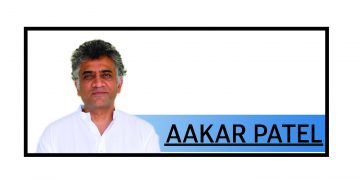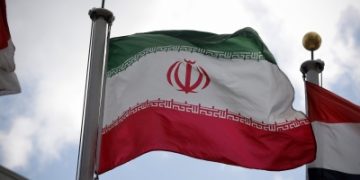Monalisa Patsani
post news network
Bhubaneswar, July 5: Close to three decades since its formation, the Orissa Urdu Academy is awaiting a much-needed Midas touch. The academy, formed under the culture department February 7, 1987, is awaiting the formation of a council that can take its development forward.
According to the academy authorities, the lack of a council is affecting timely upgradation of the institution. Authorities are unable to conduct activities such as publishing new works, or translations.
Till date, the academy has only five publications to its credit. These include: ‘Desh Premi Iqbal’ by Sayed Muzaphar Husan Barni (1988), a translation from Urdu to Oriya of ‘Dorja-Kholi-Diya’ (1991) and ‘Oriya Zuban ke Numainda Afsane’ (2000), which is an Urdu translation of works of some notable Oriya writers.
In 2004, the academy published the first Oriya-Urdu-Oriya dictionary, which contained about 20,000 words. The academy last published a literary work in 2008. The book, ‘Awaz-E-Jarasoura’, included translations of the poems of Sitakant Mohapatra. Since then, no new book has been published.
Sayed Manzoor Ahmed Quasmi, the first secretary of the academy, is said to have displayed keen interest in developing the academy. He started the quarterly magazine ‘Farogh-E-Adab’ in February 1987; but it had to be closed down after a few years. Two years ago, Daudoor Rahman, the former secretary restarted the publication.
Today, the academy is in a pitiable state with scant attention being paid to its development. In 2015, Daudoor Rahman had put up a file seeking formation of council but nothing has come out of it. Sources said the file was pending before the culture department and has not been put up before chief minister Naveen Patnaik, who is the designated president of the academy.
Dr Syed Mushir Alam, incumbent secretary of the academy, said: “A council will help the academy develop. With its formation, an executive body will be selected to decide what activities need to be carried out throughout the year. I have a few projects in mind that can be executed only if a council is formed. My first priority is to get a book on the history of Urdu literature in Orissa published.”
Syed took over as secretary of the academy in January and has since been working on an Urdu-Oriya dictionary that will contain more than 25,000 words. “In March we republished a book that would help beginners learn Urdu. We regularly organise literary events such as recitations, qawwali, ghazal nights and debates; but my focus is on documentation that will help Urdu writers and literature. My hands are tied in the absence of a council and if I go out of the way and take a decision, it may cause problems,” he said.
Syed believes that besides events, the academy should also emphasise promotion of writers. “The selection of people with inadequate knowledge of Urdu has been a problem. Sayed Manzoor Ahmed Quasmi and Daudoor Rahman were the only two secretaries who knew Urdu and understood literature. This has hampered the development of the academy,” the secretary said.
Urdu writers and poets echo Syed. “The lack of a council is hampering work of the academy. By this time it should have acquired many books. The office is not supporting writers who want to publish their works. It provides a paltry Rs5,000 to writers to publish their works, which is next to nothing in today’s world,” poet Moulana Matiullah Nazish, also a founder member of the academy, said.
Shaikh Quraish, a writer and journalist, couldn’t agree more. “The academy has not been able to do much for promotion of Urdu. It has been 10 years since it has given any award to Urdu writers. A council is necessary to help get the academy get back on to rails.”
Culture secretary Manaranjan Panigrahi, however, said the department has taken measures to install a council. “We are awaiting approval from the government. The academy is very active and regularly organises events such as qawwalis and recitation, but we have advised them to focus on documentation of works,” he said.
Panigrahi, however, stated that it was not possible to institute annual awards in the name of the academy. “There are few Urdu writers here. To be eligible for such awards, we need established writers with published works. We cannot give awards to just anyone. The award will then lose its value,” he added.






































